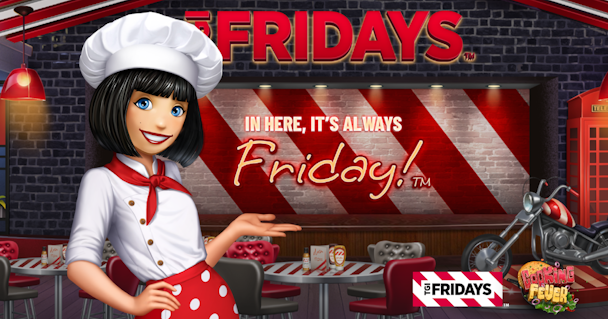Looking for exposure for your brand? In-game partnerships present huge opportunities
For The Drum's Entertainment Focus Week, Dave Tovey (head of digital media representation, Beanstalk) looks at how the gaming industry's growth presents significant opportunities for brands through strategic partnerships.

The gaming industry has seen considerable growth over the last few years. It’s a $257bn industry with about 3 billion gamers worldwide. That’s a lot of eyes and a lot of money. Gaming is a unique platform – unlike many other forms of entertainment, like TV and streaming, it demands your undivided attention.
Despite the enormous size and value of gaming, there are some challenges and risks in the industry itself right now – but those challenges are presenting sizable opportunities for smart brands and marketers.
Here’s why. Games are becoming increasingly more expensive to develop – last year’s Spiderman 2 had a $300m budget. Spiderman 2 has been a hit, but there have been many examples of game publishers sinking hundreds of millions of dollars into a title for it to be a commercial failure, with the developer never recouping those costs. Those risks are pushing game publishers to look for safe bets, tried-and-true brands and intellectual property.
As opposed to developing brand new games and franchises, game studios are focusing more on their proven online multiplayer “live service” titles, continually updating the experience with new content, player skins, locations or even events. Titles such Fortnite, Sea of Thieves, Stumble Guys, PUBG, Dead by Daylight are very much leaders in this space and continue to grow their community with these engaging activations.
However, to stay ahead of the competition, game studios need to continue to ramp up their efforts to engage current users, attract new users and stay ahead of their competition. Remember, publishers are not only competing against other titles, but are also competing against other forms of entertainment, like Netflix, Max and Amazon Prime, for viewers’ screen time.
So, what does this mean for brands?
Publishers are bringing more third-party IP into their games. Fortnite, which has about 100 million monthly users, has featured a revolving cast of character skins for years, including from the Marvel universe, Star Wars, Rick & Morty, Naruto, Rocky and many more. It’s to the point where the biggest games are having monthly drops of brand licensing collaborations.
Dead by Daylight, an online multiplayer survival horror game, recently introduced a licensing collaboration with heavy metal band Iron Maiden – which featured a branded takeover and in-game outfits based on the band's legendary lore available to purchase. Earlier this year, PUBG Mobile partnered with K-pop superstars Blackpink, for its first-ever in-game virtual concert, where fans had a chance to watch their chart-topping hits and wear branded costumes in-game.
Outside of music and battle royale shooters, obstacle course-based battle royale Stumble Guys collaborated with Mattel’s Hot Wheels. The mobile restaurant simulation game Cooking Fever recently partnered with TGI Fridays, which includes a playable restaurant with almost 100 branded elements. PowerWash Simulator – a simulation game where you build your own power washing business – released a Back to the Future Special Pack featuring jobs straight out of the movie trilogy.
In a challenging retail environment where it’s difficult to make meaningful revenue and connect with consumers, gaming partnerships like these can generate massive brand exposure. Gamers are seeing brands that they maybe haven’t thought about or cared about in a completely new and refreshing way.
While we’ve been mostly looking at in-game brand licensing partnerships within online multiplayer games, there are opportunities for full-blown licensed games. The mobile smash hit Monopoly Go! has had fantastic success, passing $2bn in lifetime revenue in just ten months after launch and only three months after reaching $1bn.
The recipe for success?
There’s no single recipe for success when it comes to game licensing. But there are a couple of things to keep in mind. Make sure the collaboration is authentic. The brand needs to fit the demographic of who’s playing the game. Similarly, if you’re going down the unexpected collaboration route, ensure it’s strategic. Appeal to the game’s fan base. Gen Z, a large proportion of gamers, will reject anything that doesn’t feel like a fit.
There are so many genres in gaming that brands are sure to find a match. Want to stay away from the more violent battle royale shooters? Look to sports. Have an existing sports sponsorship and want to avoid conflicts? Look to a party game or simulation game.
In summary, if you want to get more visibility and expand mindshare for your brand, consider gaming partnerships. The market has clearly woken up to it and the possibilities are virtually endless.
Content by The Drum Network member:

Beanstalk
Beanstalk, a global brand extension licensing agency, works closely with our clients to unlock brand equity and create many of the world’s most recognizable products...
Find out more
